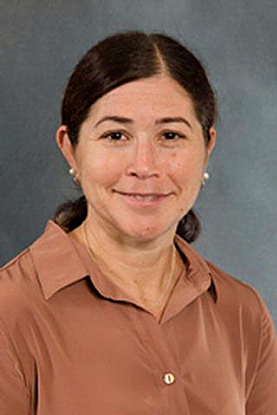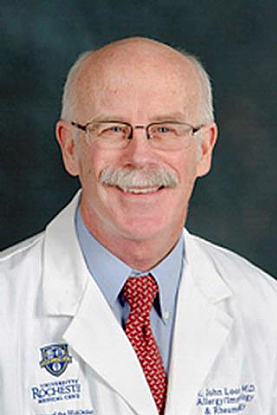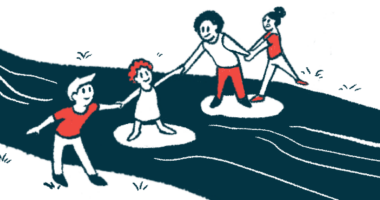Lupus Education Day Taking Place at University of Rochester on Oct. 15

 The University of Rochester Medical Center in New York will host a 10th Lupus Education Day on Saturday, Oct. 15, providing a forum for people with systemic lupus erythematosus (SLE) and their caregivers to interact and to better understand the latest developments in treating and managing the disease.
The University of Rochester Medical Center in New York will host a 10th Lupus Education Day on Saturday, Oct. 15, providing a forum for people with systemic lupus erythematosus (SLE) and their caregivers to interact and to better understand the latest developments in treating and managing the disease.
 “This is a great opportunity for people with lupus to learn about new therapies and research, and network with others,” said Jennifer Anolik, MD, PhD, director of UR Medicine’s Lupus Clinic, in a press release. The clinic is staffed by a multi-disciplinary group of healthcare professionals, and is nationally recognized for the quality of its clinical expertise and research.
“This is a great opportunity for people with lupus to learn about new therapies and research, and network with others,” said Jennifer Anolik, MD, PhD, director of UR Medicine’s Lupus Clinic, in a press release. The clinic is staffed by a multi-disciplinary group of healthcare professionals, and is nationally recognized for the quality of its clinical expertise and research.
As part of the lupus day program, which runs from 9 a.m. to 12:30 p.m., Richard Furie, MD, chief of Rheumatology at Northwell Health, formerly North Shore Long Island Jewish Health System, will deliver the address, “Blocking interferon — new breakthroughs in lupus treatment.” Other sessions will focus on research and clinical trial updates, pain management in lupus, and will include a patient panel.
Organizers also announced the establishment of the Lupus Education and Research Fund, set up by the local Lupus Foundation, to support patient/practitioner education and research.
Anolik works with rheumatologists R. John Looney, MD , the director of UR Medicine’s Allergy/Immunology fellowship program, and with Ummara Shah, MD. Looney’s particular interest is in translational research in autoimmune disease, especially B-cell depletion.
 Anolik is an adult rheumatologist whose research interests include the role of B-cells in the pathophysiology of human systemic lupus and the study of new immuno-modulatory treatments for the disease. She has been a pioneer at the university in the use of B-cell depletion as a therapy for autoimmune diseases, and in the investigation of the effects of B-cell depletion on immune function in lupus patients. She has also pioneered the use of tonsil biopsy as a means of probing immune dysregulation in autoimmune diseases, including lupus and rheumatoid arthritis.
Anolik is an adult rheumatologist whose research interests include the role of B-cells in the pathophysiology of human systemic lupus and the study of new immuno-modulatory treatments for the disease. She has been a pioneer at the university in the use of B-cell depletion as a therapy for autoimmune diseases, and in the investigation of the effects of B-cell depletion on immune function in lupus patients. She has also pioneered the use of tonsil biopsy as a means of probing immune dysregulation in autoimmune diseases, including lupus and rheumatoid arthritis.
Registration to attend the education program, a free event, is requested; please call Lindsey Junge at (585) 273-4670 or Joy Gangross at 585- 275-2891.
Lupus is an acute, chronic inflammatory autoimmune disorder that can vary from a mild condition to a life-threatening illness. In lupus, a triggering agent causes the body’s immune system to attack its own tissues, and it can affect virtually any organ system, including the skin, joints, kidney, brain, heart, lungs, and blood vessels, leading to pain, organ dysfunction, and sometimes permanent damage. It can also cause seizures, strokes, heart attacks, and miscarriages.
According to the Centers for Disease Control (CDC), by the most conservative estimates, some 322,000 Americans have definite or probable lupus, with recent independent surveys suggesting that prevalence may actually be as high as 1.5 million.
About 90 percent of lupus patients are women who were diagnosed during their childbearing years. Diagnosis of the disease can be a challenge, but detecting it early is essential to minimize damage and improve a patient’s quality of life.
Most people with lupus will be able to control the disease with medication and consistent monitoring by physicians, but it has no cure.
To learn more about UR Medicine’s Lupus Clinic, go to: www.urmc.rochester.edu/medicine/allergy/patients-families/lupus-clinic.aspx
Sources:
The University of Rochester Medicine
Centers for Disease Control






